Mia Biberović’s thoughts on Netokracija.com translated in English below:
It’s one thing when harmful software or a user experience with it makes you go to the counter after all, even though you didn’t plan to, and it’s another when it prevents those interested from getting vaccinated. At the height of the worst wave of the pandemic.
“The Ministry acknowledged the total disintegration of Cijepisi: Out of 160,000 applicants, 5,358 were invited,” is the title of the article I just opened. Unfortunately, as expected, since the registration portal for those interested in coronavirus vaccination went live, everything has gone wrong. The first, test version, for which it is not yet clear why it was available to the public at all, other than it looked rather lousy, made a whole mess with those who applied during that test period.
For days, weeks, it was not clear in what order the vaccinated applicants were invited, only to realize now that there was an error with the first few hundred applicants (although thousands were initially talked about) – and they could not even be invited because their data was incomplete. And they could not be complete because it was impossible to fill in all the data in the test phase.

Although it was reported that all applicants in the test phase of the portal were reported successfully, in practice, this was clearly not the case.
But this is not the only problem with the portal. Due to a series of omissions, the City of Zagreb and other counties simply stopped using it without anyone informing the citizens about it. At the insistence of journalists, information was finally reached: “If you have applied for vaccination, register through your doctor.”

This puts us back at least a few months. In January, I wrote that in our country, the interest in vaccination is expressed exclusively by contacting a family doctor, while in neighboring Serbia, everything was done through a simple e-government portal which, unlike ours put into use two months later, really worked.
It was as if the pandemic had been raging for a year until then and as if it could not have been assumed that vaccination would need to be arranged at some point.
But this chaos is just the culmination of bad software that should be at the service of citizens. So far, we have experienced the working hours of electronic services, endless loops in them, poor instructions and user experience, the inability to work on different operating systems. But the big difference is that because of bad software, you have to dust off Internet Explorer, because public services especially like that browser. Mac and Linux users can forget about using services or that they have to take an unplanned walk to the counter because something is held up in the process. And due to bad software, user experience, and process, more people are killed than they should because they didn’t get vaccinated on time.
2013 is the year. For the first time, e-Citizens are being talked about more seriously, and a year later, they will really introduce themselves. It seemed revolutionary for Croatia to receive information from the state to the civil mailbox via the Internet and gain insight into all the information that the state has about us.
There were problems with their usability and user experience, but at the same time, the project received international acclaim. We were quite critical of it in the beginning because we expected a lot. Aside from a very slowly growing number of services, we haven’t gotten much so far, and sometimes it took the perseverance of a horse to make the system work.
Usability, what is it?
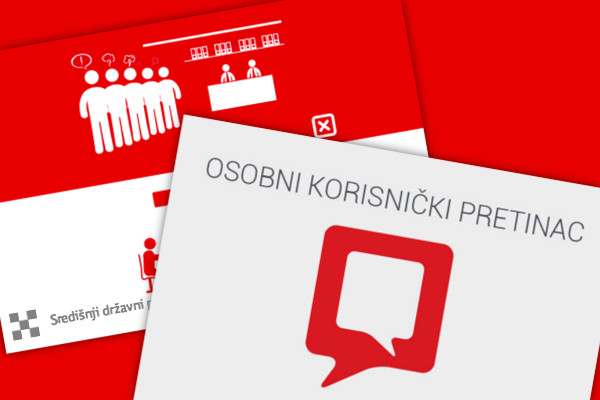
The first step where such services had issues was at the very beginning of use. Little attention was paid to usability, if at all. I remember asking a question about it at a press event to get the answer that no funds were allocated for user testing of the service.
But there were plans to work on it. Six years ago. Meanwhile, due to complicated instructions (regularly on a series of pages, in PDF), citizens began to develop their own instructions.
User tests were performed on live users. Then it was discovered that one line in the mother’s last name can make it quite challenging to access the eNewborn system, necessary for “registering” a child or that the e-mail address with which eVozačke communicates with you is not the e-mail address you you need to communicate with the service.
(By the way, e-Citizens will soon receive a redesign and a different approach to the service development, so we will certainly closely monitor what will happen there.)
Open data must be machine-readable?
One year after e-Citizens, the open data portal, data.gov.hr, the central data repository of public administration bodies, was presented. In addition to increasing transparency, the goal was to create commercial projects with the help of open, machine-readable data, i.e., for developers to create applications with the help of data that citizens would use.
✅?Otvoreni podaci važni su za ekonomski rast, konkurentnost, inovacije, stvaranje radnih mjesta i društveni razvoj u cjelini. #SDURDD uspješno provodi projekt unaprjeđenja nacionalnog Portala otvorenih podataka
Više na ➡️ https://t.co/Mo10UW1r9Z pic.twitter.com/aA9RTYUuTX— SDU za razvoj digitalnog društva (@rddgovhr) February 4, 2021
Today, we are still debating what machine-readable forms are and why they are needed. The Central State Office for the Development of the Digital Society in the above tweet boasts a flyer project featuring five, six-year-old applications, some of which don’t even work anymore – because there are no newer ones, at least not on the portal!
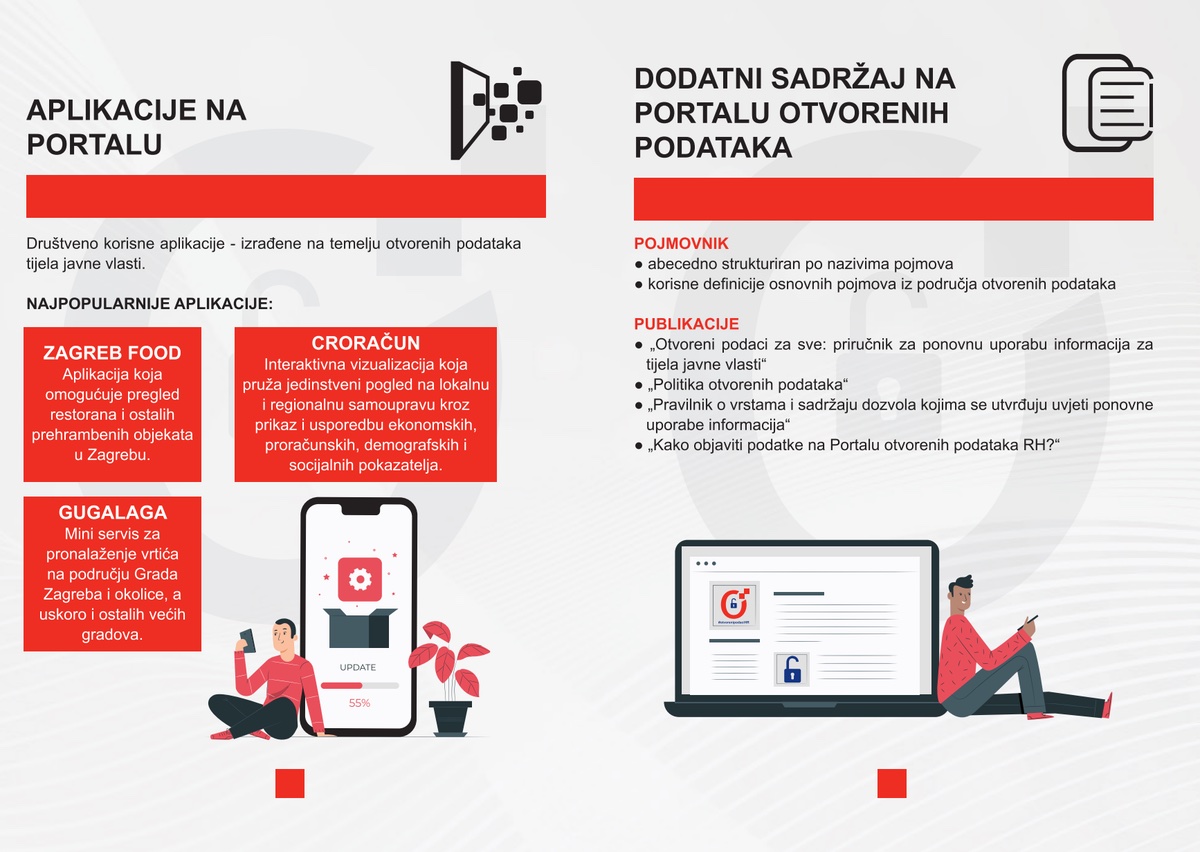
One certificate each week

Certificate illogicalities could be talked about until tomorrow, such as that it is not feasible to use some public services without a FINA certificate, which is charged extra. However, they should also be accessed using an e-ID card (just try to use e-Auctions ).
Simply put, with an ID card, we should access all public services and authorize all actions. Still, then it happens conveniently that FINA certificates are prescribed by law (fiscalization) or the use of an ID card for business purposes is prevented, even if the person is authorized to represent a company (in e-Tax, this was well resolved, but the entry of data in the Register of beneficial owners could be done online only with the help of a FINA business certificate).
Software that has working hours?
Although the e-tax service is actually a bright spot in this story, it used to be illogical. Some services had working hours.
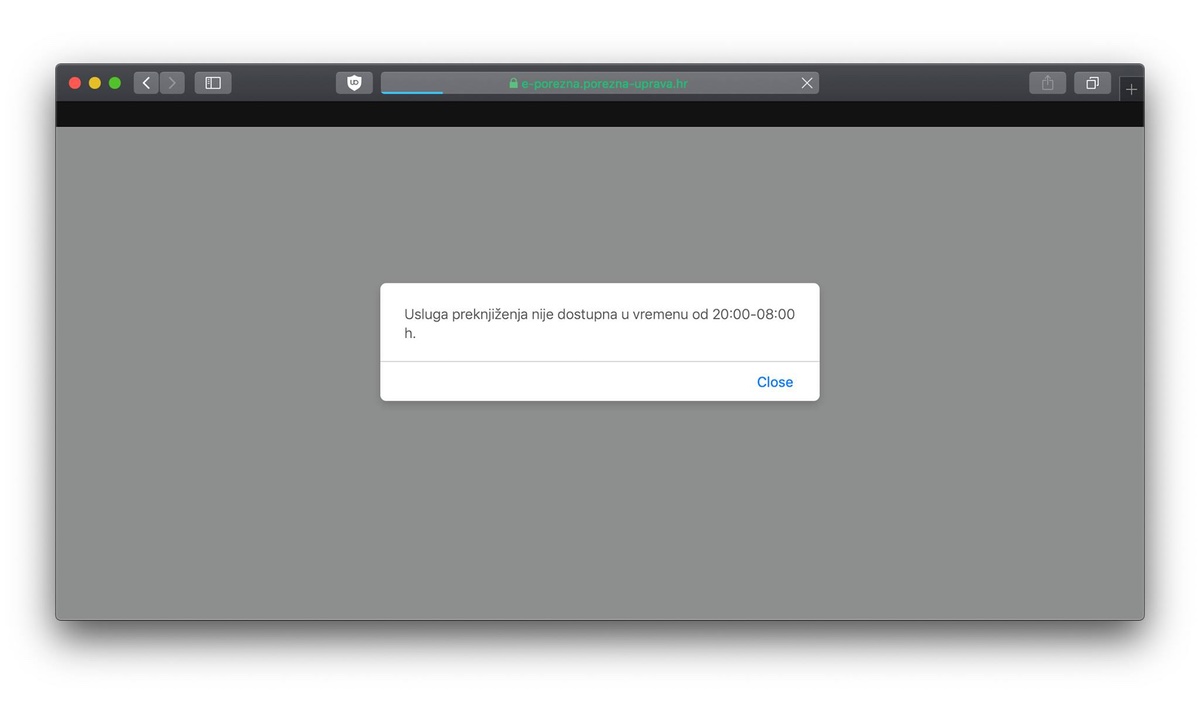
I believe there is some logic behind such a decision, but the point of online services is that they are available.
Except when they’re not.
There may not be working hours, but the e-Communication legal service, which serves to communicate with the courts, is sometimes impossible to access, although various credentials are received here.
Namely, as I found out, the service was introduced last year as an obligation to communicate with courts for legal entities, state bodies, notaries, lawyers, interpreters, experts, and others. Still, the system has such frequent failures that communication with courts turns into non-communication.
Also, I found out that outside working hours, it doesn’t make much sense to report a malfunction – the answers only arrive during working hours, so that although there are no official working hours, there is no troubleshooting outside of it. And failures, at least official ones, are not a small number.
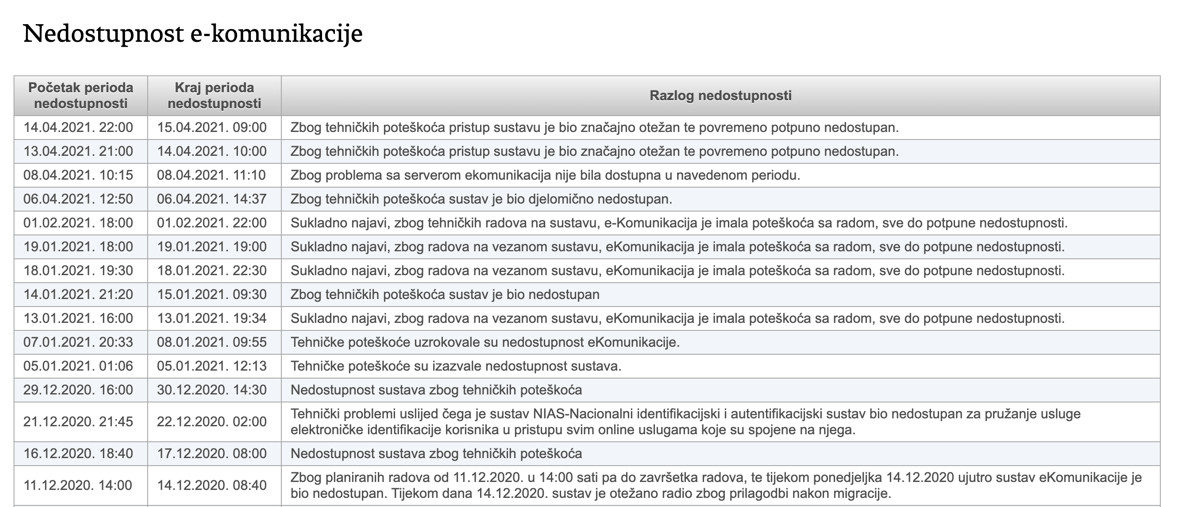
When it falls, then it really falls.
One incident from 2017 revealed that the backup of data from the register of associations did not go exactly according to the plan and schedule. Part of the data in the register of associations was lost and had to be entered manually.
And another 2020 incident revealed to us that emergency numbers depend on just one telecom. If it experiences a system crash, there are no emergency numbers.
Which, you have to admit, is pretty inconvenient.
Communication? If we really have to…?

When the gov.hr portal, which was presented at the same time as e-Citizens, was criticized, a response came from the Government that explained a lot, whether they agreed with it or not. I sincerely hoped for a similar reaction from the authorities when I wrote about communication around the vaccine before the coronavirus pandemic was a topic. We received silence and confirmation that we do not know, do not want to, cannot communicate.
Private initiatives often fill in the gaps.
From floods to earthquakes to pandemics, nature has not spared us in recent years. Private initiatives have helped the chaos that has arisen on the ground and the multitude of information and misinformation.
This is how the poplave.hr service was created after the earthquake services such as the Petrinja Earthquake or the 2020 Earthquake were made, and koronavirus.hr during the pandemic.
Often these initiatives survive as much as the enthusiasm of individuals, and the state does not recognize them, but that has changed in the case of the Koronavirus.hr service. It became a central place of communication about the then still new virus, unlike the previous situation where information was fragmented and often incomplete.
Of course, this raised the question of procedure – was such a deal allowed to be concluded without a tender?
But should we especially point out that tenders bring us florists in charge of creating software?

When it comes to private initiatives, I can’t miss the Viber group that offered timely information to foreigners who, despite the situation with COVID-19, wanted to visit Croatia last summer. However, instead of the group being led by the Croatian National Tourist Board or the Ministry of Tourism, it was led by Paul Bradbury, Krešimir Macan, and several interns.
(Bradbury was served a lawsuit after all, so I’m not sure he’s going to deal with bringing tourists to Croatia this tourist season, as the tourist board has sued him).
Everything is possible when the cash register needs to be filled…?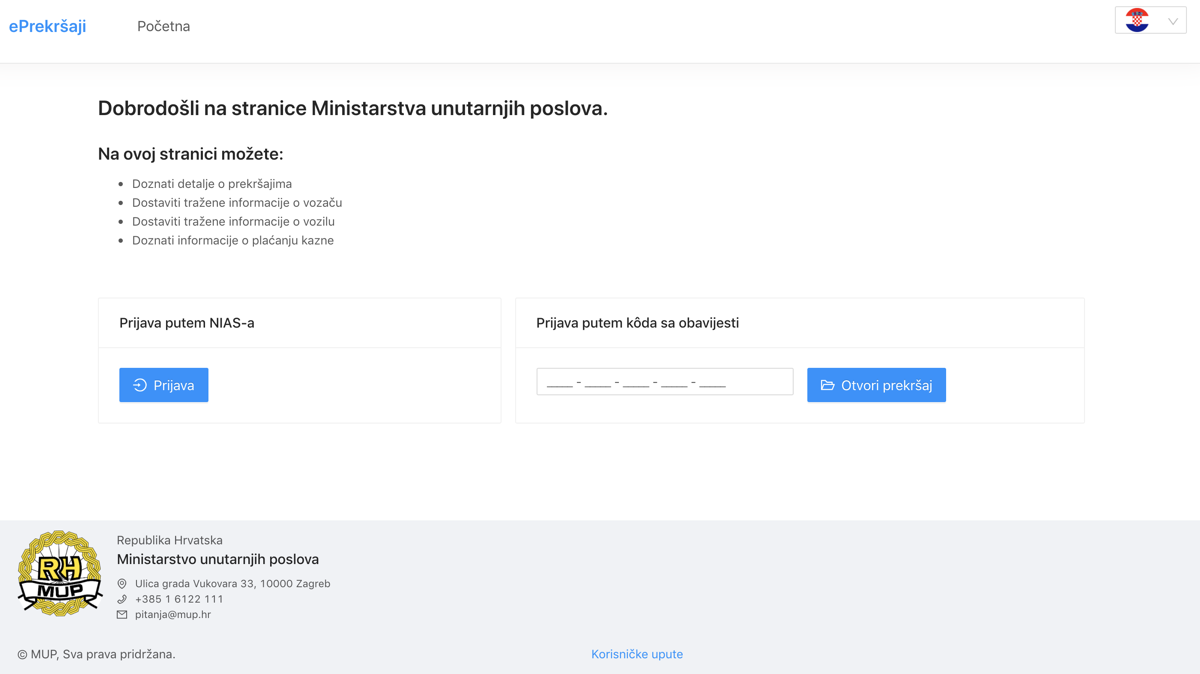
Finally, I have to share one very positive experience with public services – e-Violations. I had the honor of recently paying a fine through that service, and everything went flawlessly. When it comes to something that fills the piggy bank, it obviously can!
It’s not funny.
For the first of April, I wrote a joke that a man from Zagreb registered through the cijepise.hr portal received helpful feedback immediately and was in line for vaccination in two days. I described the application process to the Serbian version of the portal. Still, I fantasized that the databases were well connected, so doctors were immediately informed about which of their patients had been vaccinated.
Instead of laughing, all I feel is anger, helplessness, despair. I believe that many other citizens feel similarly, watching in recent days as the tangle around the disorganization of vaccination is unraveling. All that needed to be done was a good, simple service, to communicate clearly with the citizens, and to give timely information.
That mission is impossible, of course, if our code is knitted and arranged by florists, but it would be too easy to blame them. The problem with the software that should serve the citizens is older than the software itself and will not be solved so easily!
For more on coronavirus specific to Croatia, including travel, border and quarantine rules, as well as the locations of vaccination points and testing centres across the country, make sure to bookmark our dedicated COVID-19 section.











